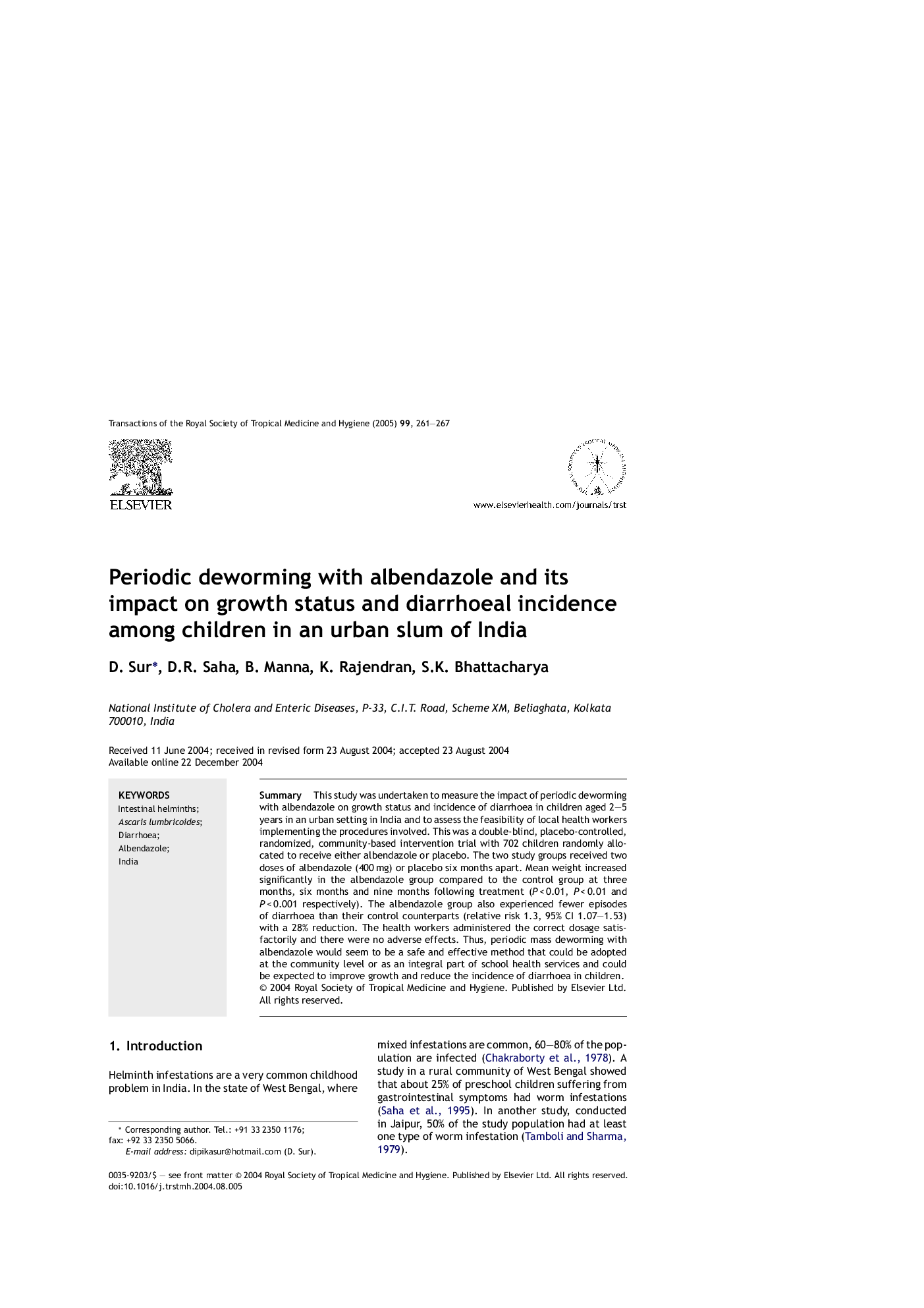| Article ID | Journal | Published Year | Pages | File Type |
|---|---|---|---|---|
| 10030612 | Transactions of the Royal Society of Tropical Medicine and Hygiene | 2005 | 7 Pages |
Abstract
This study was undertaken to measure the impact of periodic deworming with albendazole on growth status and incidence of diarrhoea in children aged 2-5 years in an urban setting in India and to assess the feasibility of local health workers implementing the procedures involved. This was a double-blind, placebo-controlled, randomized, community-based intervention trial with 702 children randomly allocated to receive either albendazole or placebo. The two study groups received two doses of albendazole (400Â mg) or placebo six months apart. Mean weight increased significantly in the albendazole group compared to the control group at three months, six months and nine months following treatment (PÂ <Â 0.01, PÂ <Â 0.01 and PÂ <Â 0.001 respectively). The albendazole group also experienced fewer episodes of diarrhoea than their control counterparts (relative risk 1.3, 95% CI 1.07-1.53) with a 28% reduction. The health workers administered the correct dosage satisfactorily and there were no adverse effects. Thus, periodic mass deworming with albendazole would seem to be a safe and effective method that could be adopted at the community level or as an integral part of school health services and could be expected to improve growth and reduce the incidence of diarrhoea in children.
Related Topics
Life Sciences
Immunology and Microbiology
Applied Microbiology and Biotechnology
Authors
D. Sur, D.R. Saha, B. Manna, K. Rajendran, S.K. Bhattacharya,
